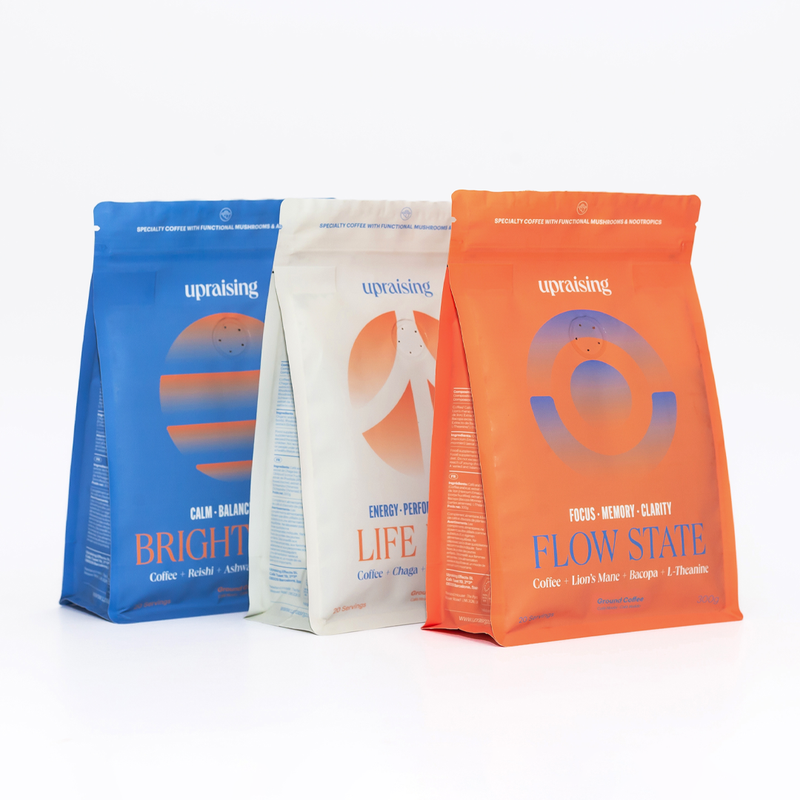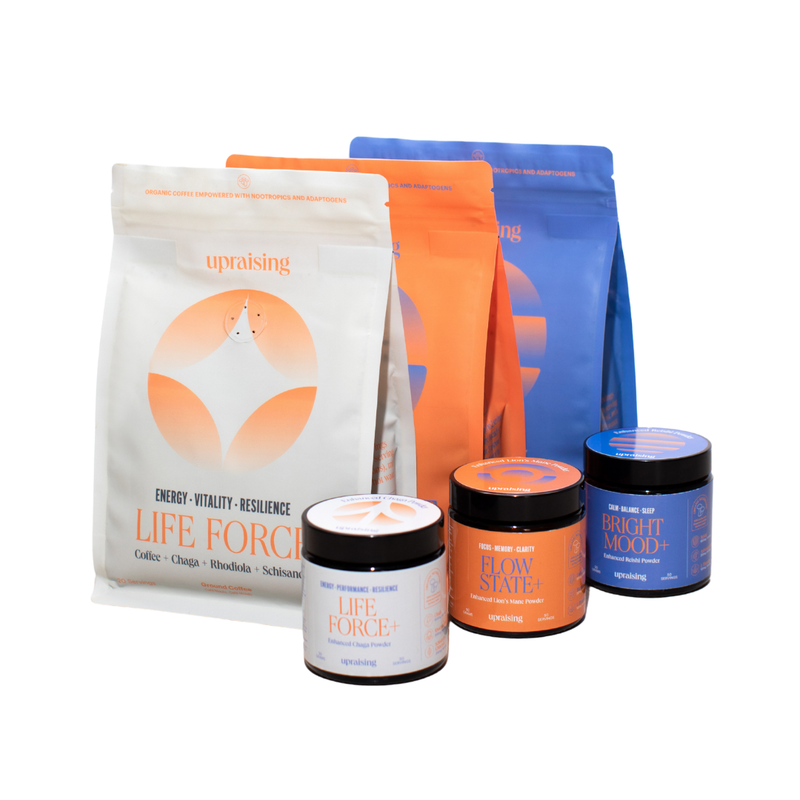The Truth About Caffeine: Guide, Effects & Alternatives
Caffeine is on everyone's mind lately. With people reducing, ditching, or seeking healthier energy sources, it's time to dive into what science really says. Is caffeine good, bad, or simply misunderstood? Let's unpack the facts, options, and what this means for you.
Here’s what the science actually says—and what it means for your daily routine.
What Even Is Caffeine?
Caffeine is a natural stimulant found in over 60 plant species, from coffee and tea to yerba mate, cacao, and more. It’s been used for thousands of years—ritualistically, socially, and functionally.
You know the effect: alertness, energy, sharper thinking. But that’s just the beginning.
How It Works In Your Body
| Short-Term Effects | Long-Term Effects |
|---|---|
| Caffeine blocks adenosine, the chemical that signals your brain to relax and wind down—keeping you alert. Effects typically kick in within 20–60 minutes and can last up to 6 hours. |
In moderation, caffeine may lower the risk of Parkinson’s, Alzheimer’s, and even depression. Too much, especially over time, can disrupt sleep, raise stress and blood pressure, and increase anxiety. |
| For some people, it boosts productivity and mental clarity. For others, it causes jitters, anxiety, or digestive upset. |
Everyone responds differently depending on genetics, stress levels, and overall health. |
Bottom line: there’s no one-size-fits-all response to caffeine. Your genetics, gut health, stress levels, and lifestyle all play a role.
How Much Is Too Much?
Most health experts agree that up to 400mg per day (around 3–4 cups of brewed coffee) is safe for healthy adults. But what’s “safe” isn’t always what’s optimal—especially if you're experiencing disrupted sleep, anxiety, or crashes mid-afternoon.
"I have at least a litre of coffee a day. Coffee is great for the gut. It's packed with polyphenolic acids they are strong antioxidants and they strengthen the good bacterias in your gut." - Berit Nordstrand, Gut Health Specialist.
It’s Not Just the Caffeine
A lot of what makes coffee or energy drinks hit differently has nothing to do with caffeine itself. Acidity, added sugars, dairy, or synthetic additives can all impact how your body reacts—and whether that boost feels clean or chaotic.
Even different plant sources (coffee beans vs. tea leaves) interact with your system in completely different ways.
Why People Are Cutting Back
It’s not just about wanting to “quit coffee.” It’s about feeling better.
- Poor sleep or anxiety after caffeine
- Stomach issues from acidic brews
- Energy crashes mid-afternoon
- A desire for focus and energy that lasts without pushing the nervous system too far
Smarter Alternatives That Actually Work
You don’t need to give up the ritual—or the energy. You just need options that meet you where you are.
→ Love Coffee, But Hate the Crash?
Try functional coffee blends made with adaptogens like ashwagandha, lion’s mane, or rhodiola. They help balance cortisol, sharpen focus, and reduce the spike-and-crash effect of traditional coffee.
→ Want to Cut Back, But Not Quit?
Tea-based blends like yerba mate have roughly half the caffeine of coffee and a gentler effect on the nervous system. Paired with adaptogens, they help you feel focused without overstimulation.
→ Going Caffeine-Free?
Enhanced mushroom powders with adaptogens and nootropics for better energy, improved stress response, and better mood—without any caffeine at all.
Whatever your direction, the goal is the same: clarity, focus, and energy that works with your body.
Summary
Caffeine isn’t good or bad. It’s personal.
What matters is listening to your body and choosing tools that help—not hinder—your energy, mood, and focus.




















